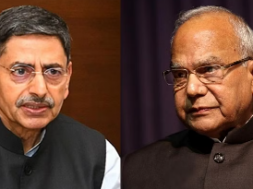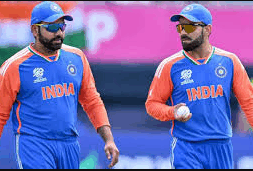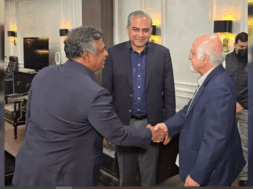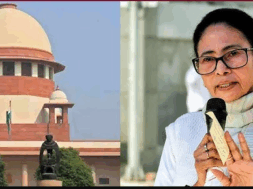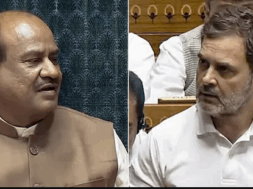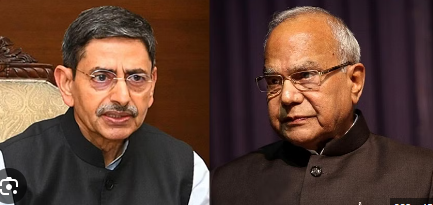
Supreme Court again Castigate Governors acting as Political Adversaries in non-BJP States
Manas Dasgupta
NEW DELHI, Nov 10: With the BJP government-appointed governors in several non-BJP ruled states continued to play the role of a political adversary, the Court on Friday again came down hard on both Punjab and Tamil Nadu governors after the state governments accused them of delaying action on bills cleared by the assemblies.
The bench, led by Chief Justice of India DY Chandrachud, urged both the governors not to delay the bills that have been cleared by the elected assembly. “Please don’t deflect the course of bills passed by a duly elected assembly. It’s a matter of very serious concern,” the Chief Justice said.
“You’re playing with fire. How can the governor say this? We are not happy with what is happening in Punjab. Will we continue to be a parliamentary democracy?” the bench added while emphasising that India has been running on established traditions and conventions and they need to be followed. The Punjab government had earlier moved the Supreme Court alleging delay in Governor Banwarilal Purohit’s giving assent to bills passed by the state assembly.
On Tamil Nadu, the Supreme Court said the “constitutional deadlock” created by governor RN Ravi by inexplicably delaying or even failing to consider and give assent to 12 crucial bills passed by the legislature stymieing the day-to-day governance in a way which is threatening to bring administration in the State to a grinding halt was a matter of “serious concern.”
A three-judge Bench issued formal notice to the Union of India through the Home Ministry to respond to the Tamil Nadu government’s petition that the Governor was acting in a manner which “defeats the rights of the people” of the State to welfare legislation.
The Punjab government plea said such “unconstitutional inaction” has brought the entire administration to a “grinding halt.” Senior advocate Abhishek Singhvi, arguing for the Punjab government, had said the governor had kept back seven bills including those related to fiscal management and education. He said the bills were sent for the governor’s nod in July and his inaction has affected governance.
The court has directed Solicitor General Tushar Mehta to place on record the details of action taken by Punjab Governor Banwarilal Purohit on the bills passed by the assembly. The Punjab governor too is involved in a long-running feud with the Aam Aadmi Party government led by Chief Minister Bhagwant Mann.
The Tamil Nadu government had also urged the Supreme Court to intervene alleging that the Governor was “undermining the will of people” by intentionally delaying the bills sent to him for clearance. The DMK government and Tamil Nadu governor have been at loggerheads for the past few months. Chief Minister MK Stalin and Centre-appointed Governor Ravi have earlier clashed on pending bills, Mr Stalin’s foreign trips, the Dravidian model of governance, and the latter’s remarks on the state’s name.
The court asked the Attorney General of India, or in his absence, the Solicitor General of India to be present in court on November 20 even as Tamil Nadu, represented by senior advocates A.M. Singhvi and P. Wilson, said the Governor was even holding back files seeking sanction for prosecution of public servants in corruption cases, pleas for premature release of prisoners and appointments to the Tamil Nadu Public Service Commission.
Mr Wilson submitted that there was “not a word” from the Governor on any of these files or Bills, which related to subjects from public health, higher education, etc. The court, in its short order, highlighted that the Article 200 of the Constitution mandated the Governor to act “as soon as possible” when Bills, passed by the State Legislature, were presented to him for declaration of assent.
Chief Justice Chandrachud orally observed that the Governor could either give his assent, withhold assent in which case, if the Bills were not Money Bills, return the Bills to the House suggesting modifications/amendments or refer the proposed laws to the President. The court said the Governor could not just sit on them indefinitely.
“The Bills have been pending since January 2020 till now. We have been begging him to consider them. We have been begging him to grant sanction for prosecution. We have been begging him for remission… He is doing nothing,” Mr Singhvi said. Mr Wilson said 10 of the 14 posts in the TNPSC, including that of the Chairperson, were vacant. There are four files for prosecution sanction forwarded to the Governor between April 2022 and May 2023.
The State said the Governor had positioned himself as a political rival to the legitimately elected government. The Governor’s inactions had caused an impasse between the constitutional head of the State and the elected government of the State. The Governor was toying away with the citizen’s mandate, the petition said.
“The Governor by not signing remission orders, day-to-day files, appointment orders, approving recruitment orders, granting approval to prosecute Ministers, MLAs involved in corruption including transfer of investigation to CBI by Supreme Court and Bills passed by Tamil Nadu Legislative Assembly is bringing the entire administration to a grinding halt and creating adversarial attitude by not cooperating with the State administration,” the State government said in its petition, filed through advocate Sabarish Subramanian.
The State urged the Supreme Court to declare the “inaction, omission, delay and failure to comply with the constitutional mandate by the Governor of Tamil Nadu” as illegal and arbitrary. The “unreasonable malafide exercise of power” by the Governor to neither consider Bills passed and forwarded to him by the State Legislature for his assent was unconstitutional.
“’Assent’ of the Governor/President does not involve any element of discretion of the individuals occupying the posts but the ‘assent’ should only be based on the aid and advice of the Council of Ministers,” the State reminded. The State sought the Supreme Court to fix a deadline or an “outer time limit” for Mr Ravi to consider the Bills and government orders pending with his office.
Further, the State noted that the Governor had failed to accord sanction for prosecution and investigation into cases of corruption involving moral turpitude of public servants and issues pertaining to the premature release of prisoners.
The State accused the Governor of “politically motivated conduct” for denying sanction to probe authorities in corruption cases against public servants despite finding prima facie evidence against them. “This includes the CBI inquiry that the Supreme Court approved and that the Madras High Court ordered,” the petition said.
Mr Ravi, a retired IPS officer, was appointed the Governor of Tamil Nadu on September 18, 2021, having been transferred from Nagaland. While Chief Minister M.K. Stalin and the DMK initially welcomed Mr Ravi’s appointment, coalition allies viewed it with suspicion.
Within a month into the governorship, DMK allies expressed concerns over Mr Ravi’s interference with day-to-day governance matters. Several ministers and others came down on Mr Ravi for seeking details on the functioning of various departments.
“It is shocking. The Governor has no right to seek any such details. He has been appointed by the President of the country and not elected by the people,” a senior minister said. The Chief Minister secured votes and assumed office after being elected by the MLAs of his party. “Only he has the right and responsibility to implement welfare schemes. The Governor’s intervention is motivated and against the Constitution,” he said and added this was an attempt to interfere with the State’s rights.
One of the most long-running standoffs between Mr Ravi and the state government began in November 2021. The Legislative Assembly passed the Tamil Nadu Admission to Undergraduate Medical Degree Courses Bill, 2021, on September 13, seeking to do away with the requirement for candidates in the State to qualify the NEET, instead wishing to admit students to undergraduate medical courses on the basis on Class XII board exam marks.
The Bill was subsequently sent to the Raj Bhavan towards the end of the gubernatorial tenure of Banwarilal Purohit, Mr Ravi’s predecessor. Mr Stalin, in November 2021, called on Mr Ravi at the Raj Bhavan and urged him to send this Bill to the President of India immediately for his assent.
The Bill was tabled in the Assembly after a high-level committee headed by retired High Court judge, Justice A.K. Rajan said in the report that NEET ‘clearly undermined’ the diverse social representation in MBBS and higher medical studies favouring mainly the affluent sections of society, and that if the examination continued for a few more years, the healthcare system of Tamil Nadu would be very badly affected. Two similar legislations passed by the Assembly during the previous AIADMK rule did not get the President’s assent.
In December 2021, the Governor’s office announced that Bill was still under consideration. In January last year, the matter reached the Home Ministry when a delegation of all-party MPs from the State met Home Minister Amit Shah, urging him to direct Mr Ravi to forward the NEET Bill to the President. The next month the Governor returned the NEET Bill to the Assembly Speaker saying, it was not in the interest of the State’s students. While returning the Bill, the Governor termed the report of the high-level committee headed by retired Justice A.K. Rajan as merely reflecting a “jaundiced view” about the Bill. A little over a week later, the DMK government re-adopted the same bill and it too faced a similar fate, sitting in the Raj Bhavan for months.
